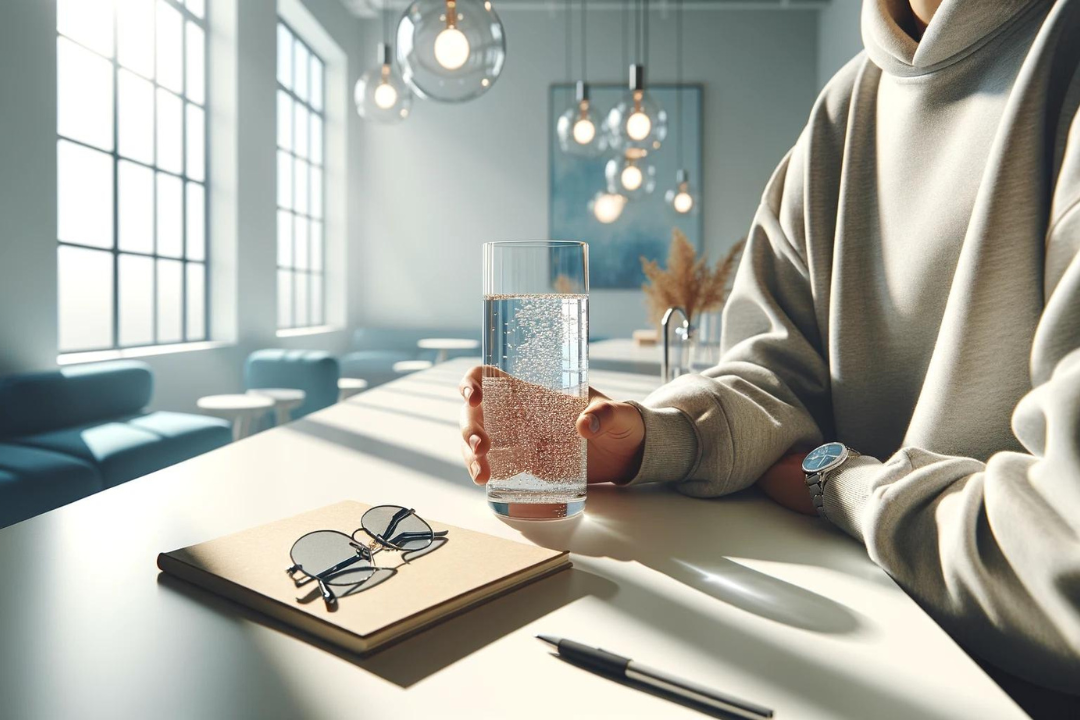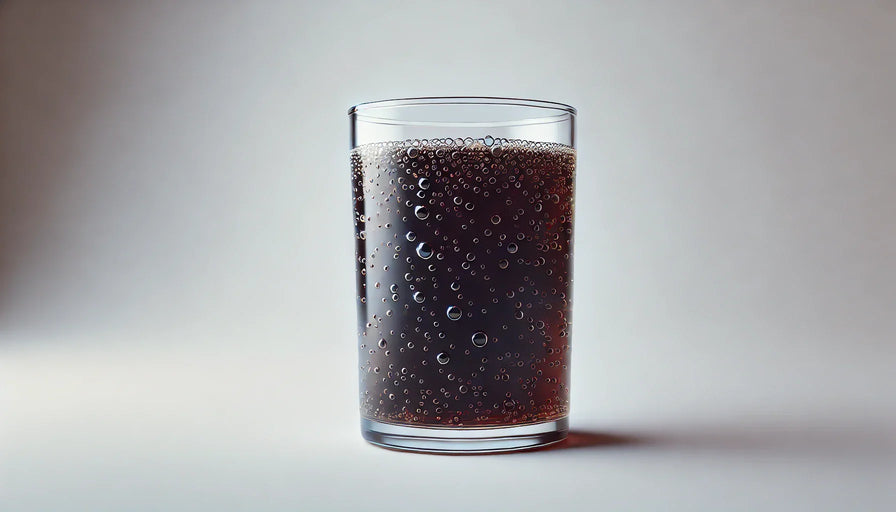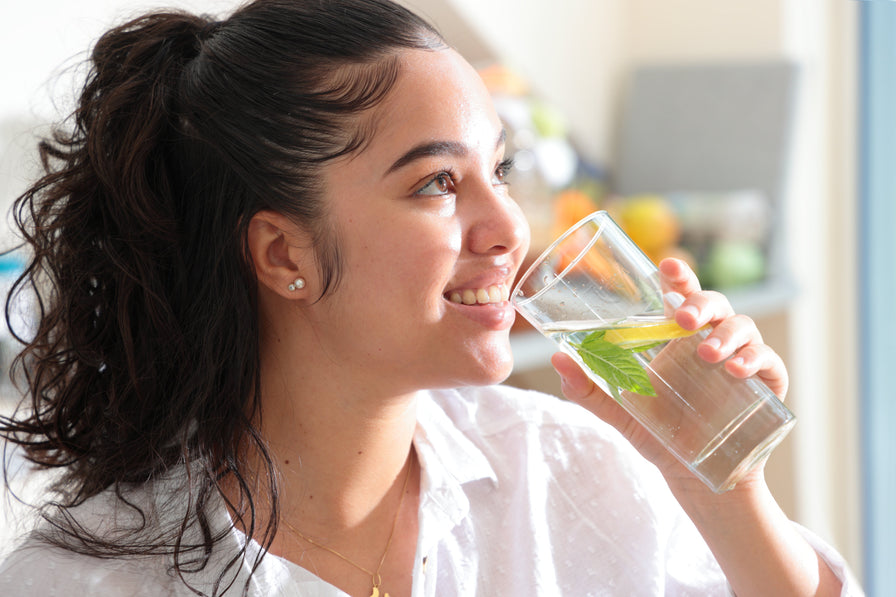
Hate the Taste of Water? Here are 7 Ways to Stay Hydrated

Summary
To stay hydrated when you dislike water, try alternatives like sparkling water, adding lemon, and eating water-rich foods like cucumbers. Also, monitor urine color and reduce caffeine intake to maintain proper hydration.
Maintaining hydration is essential for preserving good health and ensuring the body operates at its best. Regardless of your identity or profession, grasping effective hydration strategies is fundamental to well-being.
This ultimate guide will outline seven easy steps to ensure you're getting enough fluids throughout the day.
We encourage you to navigate and find the answers you need easily. Our comprehensive how to stay hydrated guide includes the following below.
Table of contents
7 Easy steps to stay hydrated when you hate the taste of water
Water serves as the life force of our bodies, playing a vital role in almost every physiological function. Constituting approximately 60% of our body weight, it participates in a multitude of crucial operations.
Based on a recent survey, it was found that 30% of Americans actually dislike the taste of water. If you happen to fall into this 30% category and seek advice on staying hydrated, it's time to explore alternative solutions!
Follow our ultimate 7-step guide to properly staying hydrated and fast-tracking your body's hydration levels:
1. Start your day with a glass of water and lemon
According to a study in the Journal of Clinical Endocrinology and Metabolism, drinking water with lemon can increase your metabolic rate by 30%.
Plus, the kick of acidity may be just what your brain needs in order to drink water without just the taste of water alone.
By drinking water with lemon first thing in the morning, you're supporting your liver's ability to flush out excess hormones, such as estrogen, that have been found to increase weight and affect sleep and overall mood.
2. Don't wait to drink until you're thirsty
Waiting to drink water until you start feeling thirsty is not a good game plan. Thirst is a late indicator of dehydration, meaning the train has already left the dehydration-station.
To avoid the feeling of thirst, try drinking small amounts of water regularly throughout your day.
This can be a great indicator that your body is maintaining an adequate level of hydration, but as we mentioned already, thirst is the last indicator of dehydration. So don't use this as the only point of measurement for daily hydration.
3. Try sparkling water to stay hydrated when you hate water
Although water is still in the name, have you tried sparkling water? Sparkling water offers the same hydrating advantages as still water, with the added bonus of carbonation providing a more enjoyable mouthfeel for many.
And before you question the cost and availability of sparkling water, the ultimate game changer in this field is a home sparkling water maker. With easy CO2 refill clubs that allow you to exchange from home, swapping plain water for sparkling water has never been easier.

4. Eat foods that are rich in water
If you find it challenging to finish your daily water intake and hate chugging a glass of water, consider adding fruits and veggies with high water content to your meals and snacks instead.
Cucumbers, lettuce, oranges, and watermelon not only keep you hydrated but also serve as nutritious snacks.
5. Dress for the occasion
The weather can play a major role in making your body more dehydrated than usual. Dressing appropriately for the weather at hand will aid in your body's ability to retain the necessary water.
This means wearing breathable, loose-fitting clothes in hot weather to prevent excessive sweating and tight layers in cold weather to preserve body heat and minimize water loss.
Although this does not directly aid in your dislike for water, in those times you find yourself hydrated through sparkling water and veggies, it's important to maintain those hard earned hydration levels by dressing for the weather!
It might seem like an obvious tip but don't forget that body perspiration doesn't just occur during exercise. One short walk in the park wearing heavy clothing on a hot summer day can do just as much damage to your hydration.
6. Monitor your urine before it's too late
Pay attention to the color of your urine as it's a good indicator of your hydration status. If it's light and pale, you are well hydrated. Dark urine suggests you need to drink more water.
But don't fret, remember you can "clothe" your water to aid in hydration without it tasting like water such as adding CO2 to make it sparkling, adding citrus, and eating lots of watermelon!
Check out our easy color guide below for more insight on tracking your urines color.

7. Reduce caffeinated beverages
Many people wonder whether you can stay hydrated just by drinking soda. Beverages such as coffee, soda, alcohol, and even some sports drinks can negatively impact your hydration levels.
Even if you are doing every precautionary hack to minimize signs of dehydration from the outside, what you're putting into it can also make a world of difference.
Learn more about whether coffee alone can dehydrate you.
Signs of dehydration
Dehydration, varying in severity, impacts the body in multiple ways. Recognizing these signs is crucial to prompt action and avert potential health issues.
Here are the common signs of dehydration to watch out for:
- Dry mouth and lips
- Fatigue or drowsiness
- Headaches
- Dark, concentrated urine
- Thirst
- Dizziness or lightheadedness
- Less frequent urination
- Dry, cool skin
Signs of hydration
Knowing whether or not you're properly hydrated is very simple and only requires looking out for your body's subtle signals. Here are a few tell-tale signs of proper hydration:
- Pale Yellow Urine
- No Dry Mouth
- Regular Bathroom Trips
- No Headaches or Dizziness
- Sharp Cognitive Function
To maintain hydration levels effectively, remember to sip water consistently throughout the day. Consistent and regular water intake is crucial for staying well-hydrated.
Related Read: How Much Water Should I Drink Per Day?
Can I drink too much water?
Yes, it is indeed possible to drink too much water, a condition known as water intoxication or hyponatremia. While rare, this can occur when you consume water in such large quantities that your kidneys can't get rid of the excess.

This may result in a decrease in your body's sodium levels, leading to cell swelling, especially perilous and potentially life-threatening if it occurs in the brain. It's crucial to highlight that this occurrence is highly uncommon and typically only arises during rigorous endurance exercises.
The key is balance, just as not drinking enough water can lead to dehydration, drinking too much can also harm your body.
Related Read: What Are the Benefits of Drinking Sparkling Water?
Does coffee dehydrate you?
Contrary to popular belief, moderate consumption of coffee does not dehydrate you to a significant extent. One would need to consume 5 cups of coffee per day to feel the potential dehydrating effects.
The diuretic effect of caffeine can cause an increase in urine output, but the fluid you consume in your coffee tends to offset this.
Hydration & cognitive function
Hydration significantly influences cognitive function, impacting attention, memory, and overall mood. Research indicates that even mild dehydration can hinder various mental processes and mood in both adults and children.
Ensuring sufficient hydration enhances focus, boosts short-term memory, and sharpens reaction time. It also plays a crucial role in preserving emotional equilibrium and stress management.
Further studies reveal that dehydration can result in fatigue, confusion, and anxiety. Even a slight decrease in hydration levels can affect our brain's efficiency.
So, how can you stay hydrated?
Staying well-hydrated is pivotal for maintaining overall health and well-being. Here’s a succinct breakdown of the key points we've covered thus far covered:
- Adopting a morning hydration habit, keeping water within reach, utilizing a home sparkling water maker, eating water-rich foods, dressing according to weather to manage sweat, and reducing intake of caffeinated beverages.
- Knowing how to recognize dehydration's symptoms, such as dry mouth, dizziness, and dark urine, along with understanding the signs of adequate hydration, can help maintain optimal health.
- Addressing common misconceptions, such as the dehydrating effects of coffee, and highlighting rare conditions like hyponatremia, underscores the balance needed in hydration practices.
- Scientific evidence reveals that staying hydrated enhances cognitive performance, including improved focus, memory, and mood, while also mitigating risks of confusion and fatigue.
By following these guidelines, integrating hydration into daily routines becomes manageable, ensuring that the body and mind function at their best.
Recommended reading

How to Give Back During Thanksgiving 2025
Key takeaways Thanksgiving is a time to express gratitude and share with those in need. From volunteering at local shelters to donating food and essentials, there are numerous ways to give back to...

What Does Carbonation Do to Your Body?
What does carbonation do to your body? Carbonation alone typically has minimal effects; however, it can cause bloating and discomfort for some, and it may worsen acid reflux due to carbon dioxide ...

What Are the Health Benefits of Sparkling Water?
Summary Sparkling water isn't just a refreshing drink—it comes with surprising health benefits too. From aiding digestion to improving hydration, discover how sparkling water can be a healthy addi...